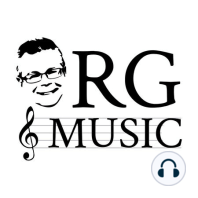19 min listen
Music History Monday: The Phoenix Rises!
ratings:
Length:
21 minutes
Released:
May 16, 2022
Format:
Podcast episode
Description
We mark the opening on May 16, 1792 – 230 years ago today – of Venice’s principal opera house, the Teatro la Fenice, meaning the “The Phoenix Theater.” Excepting, perhaps, the magnificent phallus that is the Washington Monument, dedicated as it is to “The Father of Our Country,” rarely – if ever – will a building be better named than La Fenice, which has risen from the ashes three times. Background The first public opera house – the Teatro San Cassiano – opened in Venice in 1637. Public opera quickly proved to be tremendously popular and immensely profitable, and Venice – already the tourist capitol, the Las Vegas of the European world – had yet another recreational activity to offer its endless stream of visitors. By 1700, there were some twenty opera theaters operating in Venice, cranking out operas the way Hollywood cranked out movies in the pre-television glory days of the 1930s and 1940s. As the popularity of public opera spread first across Italy and then all of Europe, so opera theaters were built across Europe. No longer the singular purveyor of public opera, many of Venice’s opera houses closed, so that by 1770 only five remained. Of […]
The post Music History Monday: The Phoenix Rises! first appeared on Robert Greenberg.
The post Music History Monday: The Phoenix Rises! first appeared on Robert Greenberg.
Released:
May 16, 2022
Format:
Podcast episode
Titles in the series (100)
Music History Monday: Maximilian Stadler: Witness to History: We mark the death on November 8, 1833 – 188 years ago today – of the Austrian pianist, composer, and Benedictine monk, Maximilian Stadler. Born on August 4, 1748, in the Austrian city of Melk, Abbé Stadler died in his adopted home city of Vienna. by Music History Monday
